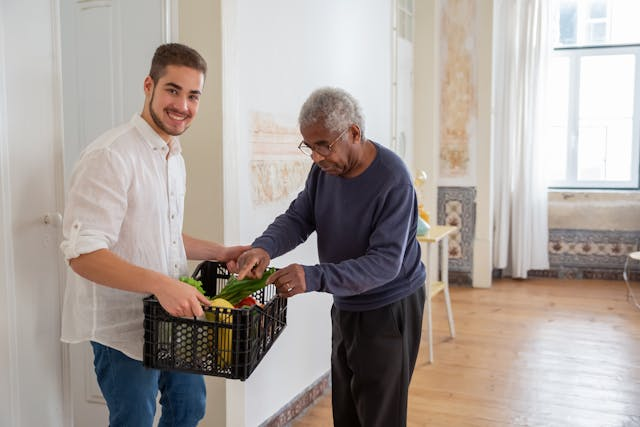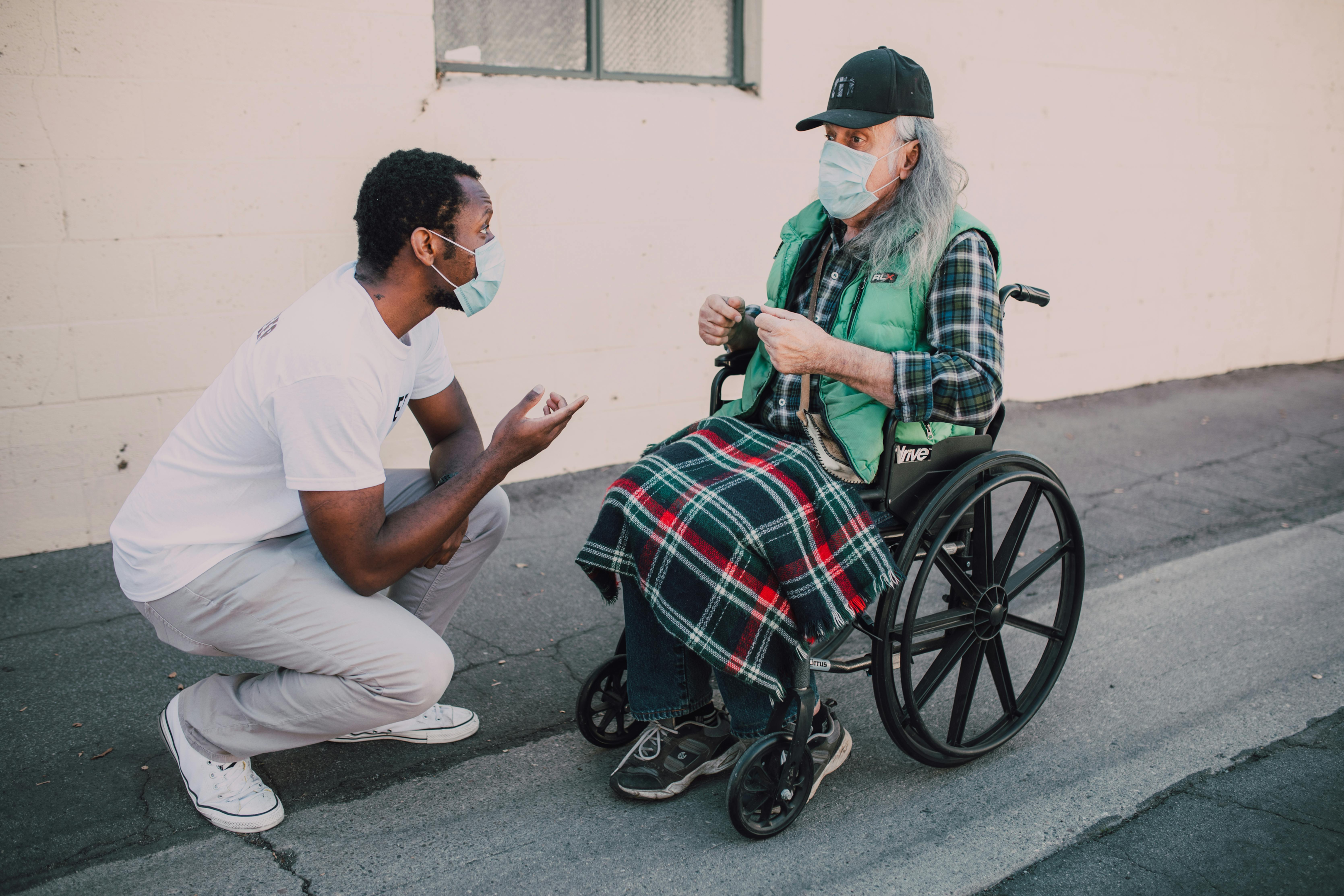Welcome to our blog post where we delve into the realm of Centers for Independent Living (CILs)in Australia and other institutions. As a professional NDIS Accredited support service provider, we’ve witnessed firsthand the transformative impact these centers have on individuals’ lives. Join us as we explore the role of CILs in promoting independence, accessibility, and self-determination in the local community.
Introduction
Centers for Independent Living (CILs) are more than just institutions or just service providers; they are pillars of support and advocates for the health and empowerment within the disability community in Australia.
Understanding Centers for Independent Living

What Are Centers for Independent Living?
-
Community-based Organizations:
CILs operate on the principles of consumer control, peer support, and the independent living philosophy.CILs operate on the principles of consumer control, peer support, and the independent living philosophy. They are grassroots organizations that are governed and operated by individuals with disabilities, ensuring that the services and programs offered are tailored to meet the unique needs and preferences of the disability community.
-
Core Services:
They offer a range of core services aimed at maximising independence and participation in society. They offer a range of core services aimed at maximising independence and participation in society. These services may include housing assistance, advocacy, peer support groups, skill development programs, and information and referral services. By addressing various aspects of independent living, CILs empower individuals with disabilities to live life on their own terms.
CILs strive to create an inclusive environment where individuals with disabilities are empowered to make their own choices and lead fulfilling lives. Through a person-centered approach, they work collaboratively with clients to identify their goals and provide the necessary support and resources to achieve them. This individualised approach ensures that each person receives the assistance they need to thrive and actively participate in their communities.
The Evolution of the Independent Living Movement
The Independent Living Movement challenged the prevailing medical model of disability and advocated for the rights and ability of individuals with significant disabilities to live independently in the community.
The Role of Centers for Independent Living in the NDIS Era
With the introduction of the National Disability Insurance Scheme (NDIS), Centers for Independent Living have assumed a pivotal role in the provision and administration of support services for individuals with disabilities. Beyond just support services and nursing homes, CILs have become key players in facilitating a wide range of assistance tailored to the needs of those they serve.

They act as advocates, navigators, and coordinators, ensuring that individuals have access to the resources and support necessary to lead fulfilling and independent lives within their communities. They advocate not only for the disabilities act, but also for the Rehabilitation Act.
This form expansion of their role underscores their significance in empowering individuals with disabilities to exercise greater control over their lives and choices, in line with the principles of consumer control and the independent living philosophy.
Core Services Provided by Centers for Independent Living
CILs offer a range of services tailored and created to meet the diverse needs of their clients, among other services including:
1. Peer Support: A Cornerstone of Independent Living
Peer support is a fundamental aspect of the services provided by Centers for Independent Living. It involves connecting individuals with similar experiences to share knowledge, experiences, and emotional support. Personal anecdotes often highlight the transformative power of peer support in overcoming challenges and building self confidence to help themselves.
2. Breaking Down Attitudinal Barriers
Centers for Independent Living play a vital role in the local community by challenging stereotypes and promoting a culture of acceptance and respect. They work to educate the public about disability issues, address misconceptions, and advocate for equal treatment and opportunities for individuals with disabilities.
3. Accessible Housing and Transportation
Access to accessible housing and transportation is essential for individuals with disabilities to live independently in the community. Centers for Independent Living CILS provide assistance for clients in finding suitable housing options that meet their accessibility needs and provide support in navigating public transportation systems, ensuring that individuals can access essential services and participate fully in society.
4. Advocacy for Disability Rights
Centers for Independent Living are tireless champions for change, advocating for policy changes and legislative reforms that promote equality and inclusion for individuals with disabilities. They work closely with government agencies, community organisations, and other stakeholders to address systemic barriers and ensure that the rights and needs of individuals with disabilities are upheld and respected.
This disability rights movement aims to maximise independence for people with special needs. This basic human rights to live comfortably and freely is what it advocates for.
5. Transition Services for Youth with Disabilities
Centers for Independent Living offer transition services that support youth in navigating postsecondary life, education, and employment opportunities. These services may include career counseling, assistance with college applications, job training programs, and support in developing independent living skills, empowering youth and people with disabilities to transition successfully into adulthood.
6. Maximising Independence Through Assistive Technology
Assistive technology plays a crucial role in enhancing independence and quality of life for individuals with disabilities and who need some physical and even psychological and emotional support. Centers for Independent Living provide information, training, and support to help clients access and effectively use assistive technology devices and services, enabling them to overcome barriers and live more independently.
7. Engaging Families and Communities
Independent living centers recognise the importance of engaging families and local communities in supporting individuals with disabilities. They provide primary up to secondary education and outreach programs to raise awareness about disability issues, foster understanding and acceptance, and promote collaboration among stakeholders to create inclusive environments where everyone can thrive.
8. Building Capacity Through Training and Education
Centers for Independent Living offer a variety of training and education resources and programs designed to enhance the skills and knowledge of individuals with disabilities. These programs may cover topics such as self-advocacy, independent living skills, financial management, and employment readiness, empowering individuals significant disabilities to achieve their goals and live more fulfilling lives.
Re.Connect Support Services: Spotlight on Supported Independent Living (SIL) Services
At Re.Connect Support Services, we specialise in providing equal access to our community-based Supported Independent Living facilities (SIL) services tailored to meet the unique needs of individuals with disabilities or to anyone who needs it

Our team of dedicated support workers provides personalised assistance to clients in areas such independent living services such as:
-
Daily Living Skills: Supporting clients in developing and maintaining essential life skills.
-
Household Management: Assisting clients with tasks such as cooking, cleaning, and budgeting.
-
Community Engagement: Facilitating opportunities for clients to participate in social and recreational activities.
-
Other Available Services: We have some services such as capacity building, support coordination and even family and housing support.
With a focus on promoting CIL services with independence and autonomy in medical care for family members, we empower our clients to live fulfilling lives on their terms.
The Future of Independent Living in Australia
As an example, we look to the future, Centers for Independent Living will continue to play a vital role in advancing the rights and independence of individuals with disabilities.
Conclusion
Centers for Independent Living empower individuals with disabilities to live life on their terms. If you or someone you know is seeking support to live independently, consider reaching out to a local Center for Independent Living. Together, we can unlock freedom for people with disabilities and create a more inclusive society for all.

